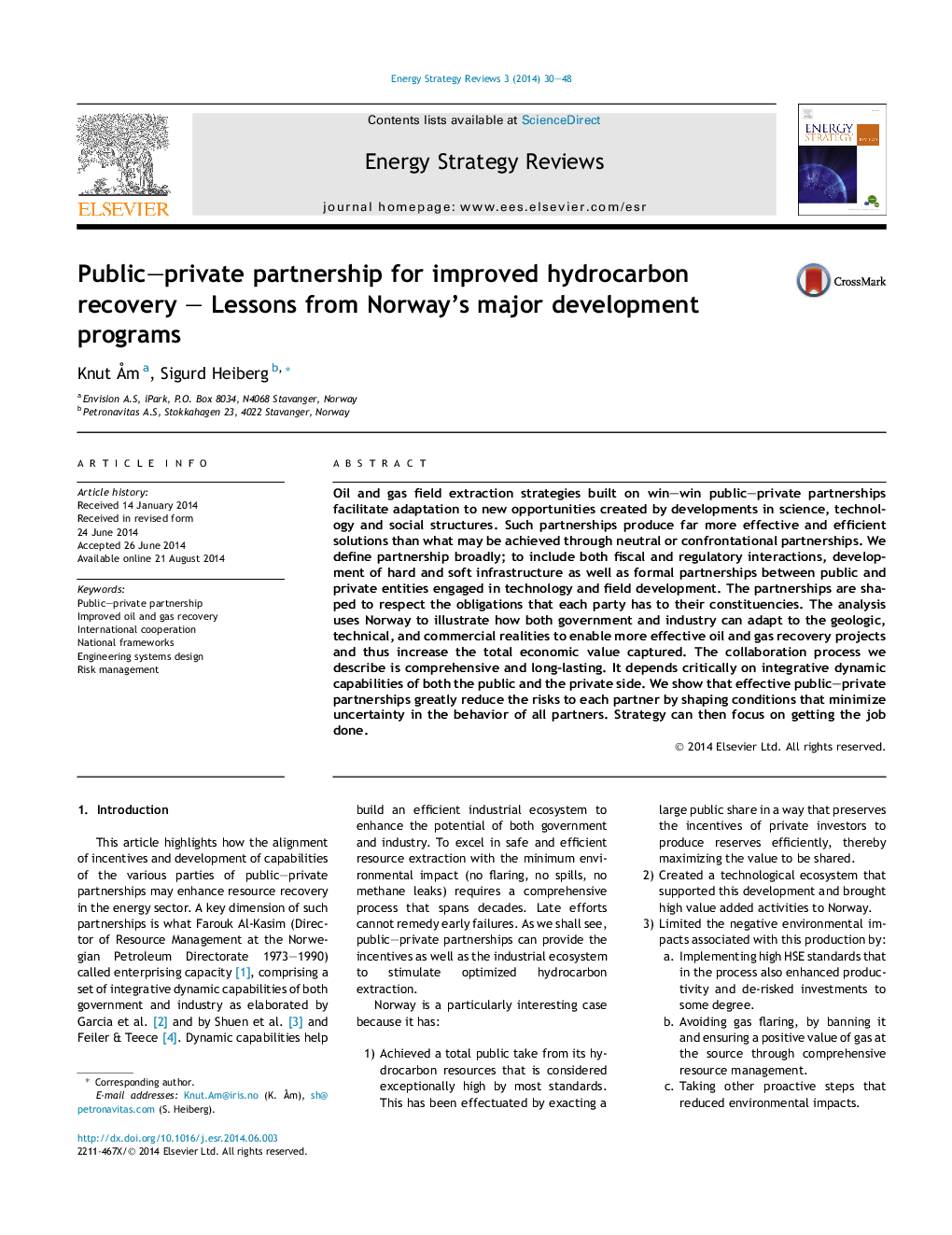| Article ID | Journal | Published Year | Pages | File Type |
|---|---|---|---|---|
| 7434916 | Energy Strategy Reviews | 2014 | 19 Pages |
Abstract
Oil and gas field extraction strategies built on win-win public-private partnerships facilitate adaptation to new opportunities created by developments in science, technology and social structures. Such partnerships produce far more effective and efficient solutions than what may be achieved through neutral or confrontational partnerships. We define partnership broadly; to include both fiscal and regulatory interactions, development of hard and soft infrastructure as well as formal partnerships between public and private entities engaged in technology and field development. The partnerships are shaped to respect the obligations that each party has to their constituencies. The analysis uses Norway to illustrate how both government and industry can adapt to the geologic, technical, and commercial realities to enable more effective oil and gas recovery projects and thus increase the total economic value captured. The collaboration process we describe is comprehensive and long-lasting. It depends critically on integrative dynamic capabilities of both the public and the private side. We show that effective public-private partnerships greatly reduce the risks to each partner by shaping conditions that minimize uncertainty in the behavior of all partners. Strategy can then focus on getting the job done.
Related Topics
Physical Sciences and Engineering
Energy
Energy (General)
Authors
Knut Ã
m, Sigurd Heiberg,
